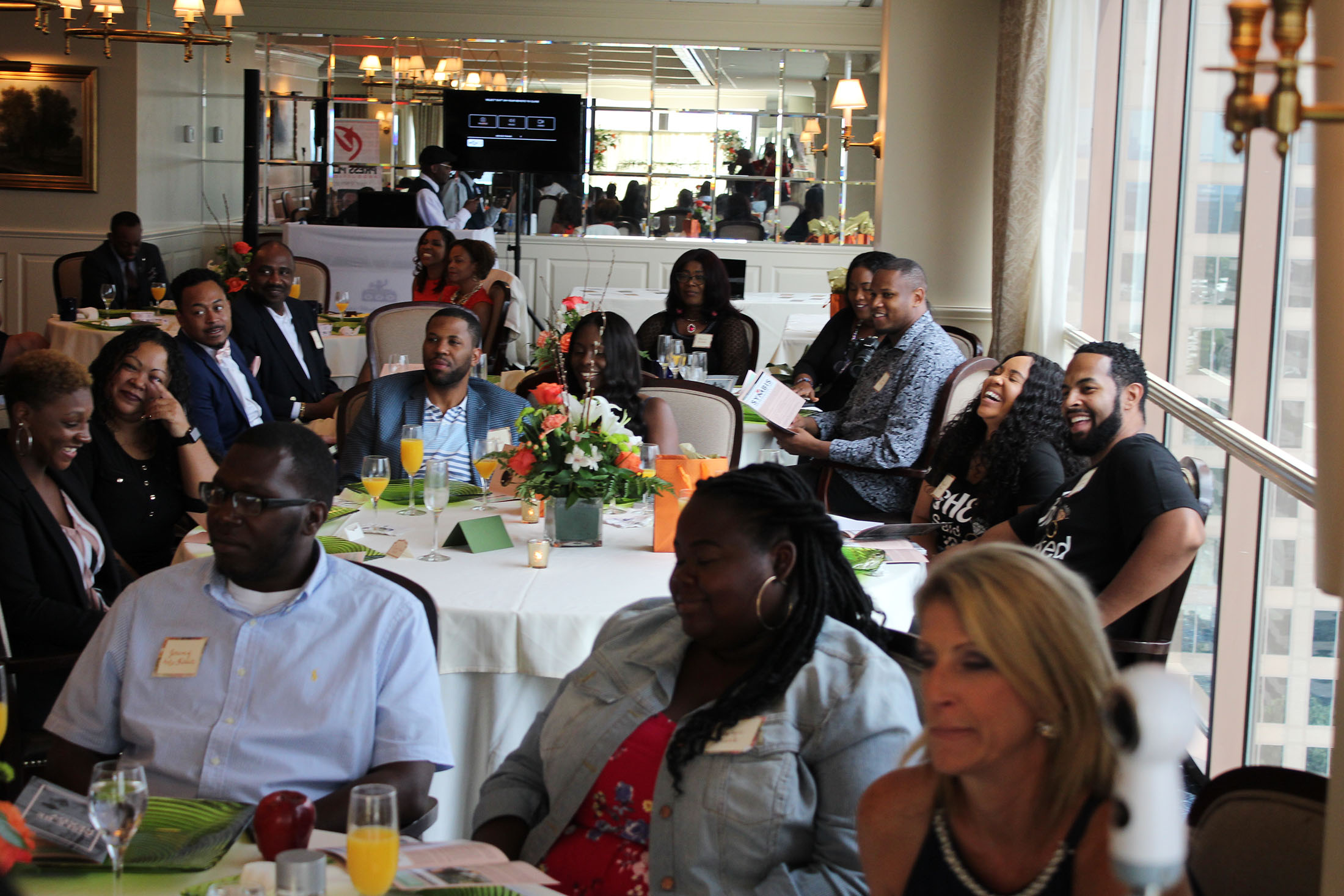
ATLANTA HIGH FASHION | BRIDAL Fête that raised funds and awareness for nonprofit partners Giving Kitchen and the Georgia Breast Cancer Coalition, in collaboration with Brides Against Breast Cancer.
The Five Love Languages: Don’t Count Them Out Just Yet
Ryan Frederick, creator of the "Fierce Marriage" Blog, has been married to his wife Selena for 17 years. He openly shares a personal story in his journey to learning and understanding his wife's love language:
"I tell Selena I love her at least a few times each day – but the phrase has very little bearing on whether or not she feels loved. I can say it, text it, email it, and write it in the clouds but if my actions don't show her I love her, the words quickly lose their meaning – they're merely a quick breath of air formed into three syllables of consonants and vowels.
I also show Selena I love her by kissing her. But kisses I give to her don't mean as much as her kisses given to me. Why? Because we speak different love languages… Selena feels most loved when we spend good amounts of quality time together with good conversation. Nothing fills her love-bucket like a devoted day together – free from distraction and diversion. If I give her a kiss or tell her I love her after a day together, she knows it and she feels it." (Frederick, n.d.)
We all experience and express love in different ways, and we share it with those closest to us like our children, friends, siblings, co-workers, but most importantly, our mate. Much like Ryan and Selena, the key is not only to recognize our own love language, but our partner's as well. Unfortunately, in our romantic relationships, we, sometimes, unknowingly push our love language onto our mate, not to be spiteful or manipulative, but because we're trying to subconsciously communicate the way we prefer to receive love. We can also be naturally unaware of our partner's love language as well as ours. Frederick explains "It's our duty to figure out the best way to communicate love to our partner" and after we have grasped that concept, we should continue to do the work to speak their language of love, consistently (Frederick, n.d.).
The Five Love Languages: How to Express Heartfelt Commitment to Your Mate, written by Gary Chapman, well-known author and senior associate pastor at Calvary Baptist Church in Winston-Salem, North Carolina, confirms the importance of understanding each other's love language. "If we want them to feel the love we are trying to communicate, we must express it in their primary love language," Chapman writes (Fetters, 2019). He notes that if we can observe and analyze how our parter express love and the things they ask of us, then we will have a better outline of their needs. After many years of counseling couples, Chapman realized that "What makes one person feel loved does not necessarily make another person feel loved" (Chapman, n.d.). Chapman's original book, which was published in 1992, is a long-standing New York Times Best Seller and has sold more than 12 million copies. The book provides a blueprint for couples whose desire is to consciously express affection and support to their mate using a concept called the "Five Love Languages." Chapman divided the love languages into five categories: Acts of Service, Receiving Gifts, Physical Touch, Quality Time, and Words of Affirmation.
Although Dr. Chapman has written several special editions of the five love languages, his original book, however, focuses on married church couples. Since 2009, his book has gained world-wide notoriety, has been printed in 50 languages, and has become one of the most purchased relationship advice books (Fetters, 2019). Couples in intimate and romantic relationships can identify their own love language through a popular website launched in 2010, where more than 30 million people have taken a quiz. Chapman thoroughly explains each love language in his book and how to identify them in your partner. He also confirms the theory that each person has one primary and one secondary love language and how both parties can lean in, to keep their 'love tank' full (Chapman, n.d.).
They are encouraged to read the book and take the FREE quiz here.
Here are some examples of The Five Love Languages:
Acts of Service: Being action-oriented appeals to those whose love language is Acts of service. It reminds them that they're not alone in getting things done, but also, they have a partner that cares enough to think of their needs and want to help. They can be in the form of small acts like cooking a meal or doing the laundry. They also take careful consideration and can be grand gestures like helping with tedious planning of an event or deep cleaning the home. It says…you're choosing to be involved without the form of any expectation from your partner.
Receiving Gifts: Making your partner a priority through thoughtfulness is one of the best gifts. The gift doesn't have to be expensive or grand, but it should come from the heart and it should be chosen carefully and expressed with gratitude. Gifts can also be experiences like a weekend getaway or throwing a birthday party for your spouse. Looking for those moments to be spontaneous without asking makes your partner's love tank feel full.
Physical Touch: It's not all about sex; it's an intimate and stimulating love language. Physical touch is showing affection, like a warm hug first thing in the morning, a subtle kiss, or even a back rub after a long day. Sometimes your partner just need to feel wanted in the most gentle way.
Quality Time: Creating a space for your partner where there's uninterrupted and focused conversations are especially important. Taking walks, going to see a movie you both have been planning, or even penciling in staycations are ways to spend good quality time with your partner. Be sure they have your full attention and you're not glued to your phone or your tablet during your time together. By being deliberate in your quality time giving, you're reinforcing how important your partner is to you.
Words Of Affirmation: When we listen actively to our partner, we understand who they are and what they like or don't like. In return, we genuinely respond, with what it is we appreciate and love about them. Naturally, verbalizing kind words like.. you look wonderful, today, honey or I really appreciate you taking the children to school this morning are good ways to validate the one you love. Don't expect your partner to know how you 'feel,' be intentional with your words and use them.
Love languages are an important part of any relationship as it helps us to understand how someone else communicates. It also 'turns on that light bulb' in a romantic partnership when you can thoroughly 'see' your person in an intimate way and speak the language in which they've always desired. The five love languages are not meant to shortcut actual communication, but, rather heal the fundamental misalignment in how we give and receive love. It is most effective when both partners can change and grow together. It's about taking the time and effort to learn your significant other's love language just like you would if they spoke a different language. Choosing to love your partner every day in a caring and compassionate way can change the emotional climate in your relationship. It's a commitment of love to both you and your partner.
Blog Article Author: Heidi-Ann Milwood


3355 Lenox Road NE, Suite #750
Atlanta, GA 30326



